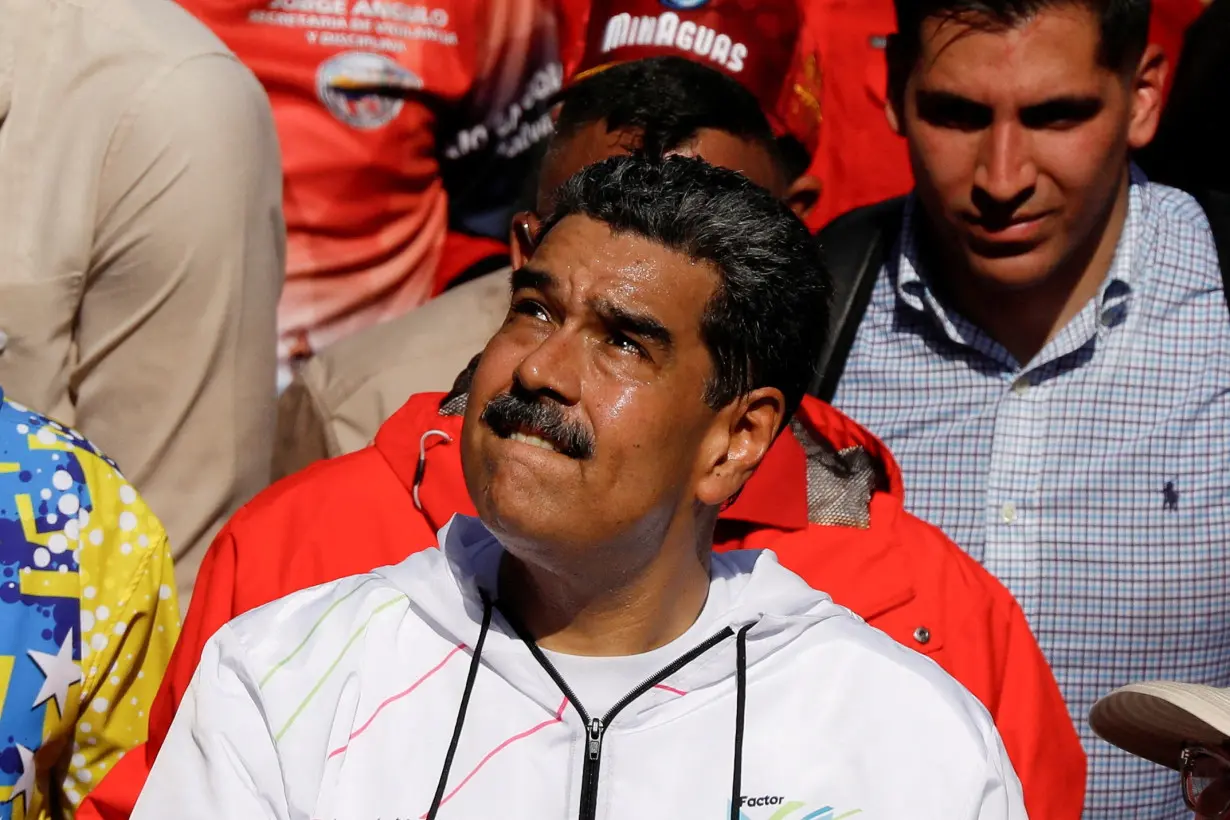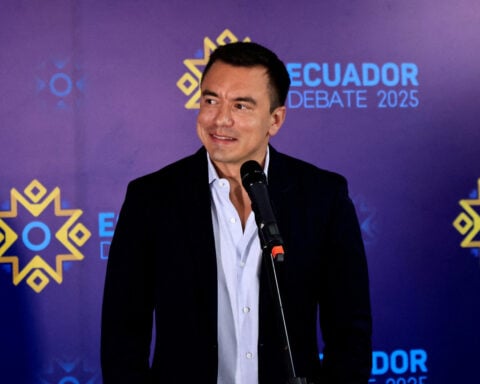By Mayela Armas
CARACAS (Reuters) - The Venezuelan government is aiming to make up for the return of U.S. oil sanctions by raising tax revenues so it can increase spending on public workers and secure their support in July's elections, public and private sector sources said.
Washington reimposed broad oil sanctions in April in response to what it said was President Nicolas Maduro's failure to meet electoral commitments inked last year with the opposition.

The renewed restrictions mean companies must seek individual licenses from the U.S. to operate in Venezuela, slowing efforts to increase crude production and hitting government coffers ahead of the July 28 contest, where Maduro is seeking his third re-election.
The government is seeking to make up the shortfall via fresh tax revenue efforts, three sources with knowledge of the matter told Reuters. The sources said the Maduro administration wants to slightly increase social spending and boost bonuses for public employees, who earn significantly less than private employees and have not had a pay raise for two years.
Some opinion polls have shown strong voter support for the opposition, which named Edmundo Gonzalez as its unity candidate after first-choice Maria Corina Machado was barred from public office.
"We must insist on reaching the goal of doubling income from taxes and we will achieve it," Maduro told business people in an April speech.
A public sector source who asked to remain anonymous said the government was "looking to cover the difference created by less oil income with more tax revenue."
Spending was being evaluated at a level that would not stoke inflation, which remains "the worry" of the government, the source said.
Neither the communications or finance ministry responded to a request for comment.
Maduro's government this year has intensified efforts to bring inflation down to two digits, holding the exchange rate steady and weighing how to spend on social programs without stoking consumer price rises.
EARLY TAXES
In order to raise the tax take, the Maduro government has been conducting frequent audits of private sector companies, reviewing receipts and sometimes applying fines, business and official sources said.
Officials are also asking businesses to pay some taxes earlier than planned and looking to expand the number of contributors, the sources added.
Tax agency Seniat did not respond to a request for comment.
"We must be more efficient in tax collection and more meticulous with our audits," said ruling party lawmaker Jose Vielma, a member of the government-allied national assembly's finance committee.
Maduro said on Wednesday his government would also propose a law to increase pension contributions by businesses.
Tax take was up to $2.2 billion in the first quarter, according to official figures, a 57% increase over the same period last year, growing in tandem with increased oil income. Total year-to-date tax take rose to $3.1 billion through April, Maduro said on Wednesday.
But oil income - around $1.7 billion per month between January and April - will fall by some $370 million per month now the oil sanctions are back in place, according to estimates by independent analyst firm Sintesis Financiera.
Government officials have told business leaders that tax revenue must reach $8 billion this year, one private sector source said, up from a $5.87 billion estimate in this year's budget.
"Spending has begun to increase and it's possible (the government) will sacrifice exchange rate and inflation stability in the next three months," said Asdrubal Oliveros of analyst firm Ecoanalitica.
Annual inflation was 67.75% through March, according to the central bank.
(Reporting by Mayela Armas; Writing by Julia Symmes Cobb; Editing by Rosalba O'Brien)

 Trump has begun another trade war. Here's a timeline of how we got here
Trump has begun another trade war. Here's a timeline of how we got here
 Canada's leader laments lost friendship with US in town that sheltered stranded Americans after 9/11
Canada's leader laments lost friendship with US in town that sheltered stranded Americans after 9/11
 Chinese EV giant BYD's fourth-quarter profit leaps 73%
Chinese EV giant BYD's fourth-quarter profit leaps 73%
 You're an American in another land? Prepare to talk about the why and how of Trump 2.0
You're an American in another land? Prepare to talk about the why and how of Trump 2.0
 Chalk talk: Star power, top teams and No. 5 seeds headline the women's March Madness Sweet 16
Chalk talk: Star power, top teams and No. 5 seeds headline the women's March Madness Sweet 16
 Purdue returns to Sweet 16 with 76-62 win over McNeese in March Madness
Purdue returns to Sweet 16 with 76-62 win over McNeese in March Madness








